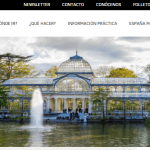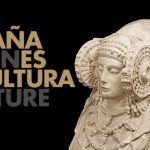With the support of the Spanish Federation of Municipalities and Provinces (FEMP), SEGITTUR and TECHFriendly have created a guide to reactivate Smart Destinations following COVID-19, which today was presented to the members of the Smart Destinations Network.
Tourism has been one of the sectors most affected by the crisis resulting from the COVID-19 pandemic. The objective of this guide is therefore to provide destination managers with guidelines and methodological tools to face the new uncertain situation, using the Smart Destinations model as a reference.
This guide, which today was presented by the Chairman of SEGITTUR, Enrique Martínez Marín; the secretary-general of FEMP, Carlos Daniel Casares; and the director of marketing and communication at TECHFriendly, Nagore de los Ríos, aims to raise management bodies’ awareness of the five Smart Destination model categories and design a roadmap to recovery so as to achieve balanced tourism development, which is more sustainable, safe and supportive, aligned with the 2030 Agenda.
The guide also makes recommendations and suggestions for specific actions to destination managers, which may aid them in designing their own strategies to reactivate tourism in their destinations.
The recommendations have been organised around six dimensions, linked with the categories of the Smart Destination model: economic and social, health and safety, marketing and communication, tourist attractions, knowledge management and public-public and public-private collaboration.
Among the suggested actions are the provision of support to local entrepreneurs, the creation of new customer service channels for tourists, advice on boosting online sales, location redesigns to guarantee health security and the need to always provide up-to-date information on the different communication channels.
Actions aimed at seeking loyalty from tourists to destinations and the development of a communication strategy based on new attributes linked to security and confidence are also suggested.
In terms of tourist attractions, the guide recommends that destinations offer tourists unique, memorable and personalised experiences, creating new products and services from existing resources, including gamification or virtual visits.
Regarding knowledge management, the guide highlights the importance of data, since data analysis will enable improved destination management.
Finally, collaboration guidelines are provided, and the guide suggests strengthening bodies’ leadership in destination management, promoting co-operation between public and private agents, civil society and the integration of all local stakeholders. It specifically notes the importance of working together to benefit the destination, its citizens and its visitors.





